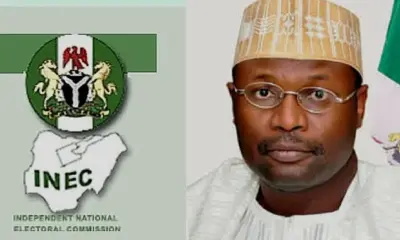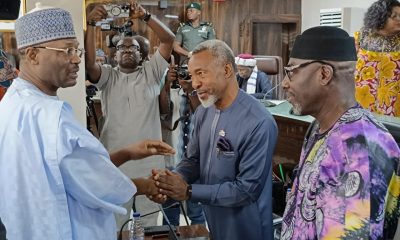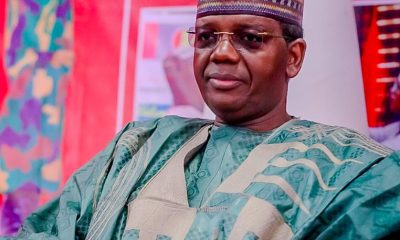Opinion
Social media in Nigeria: Sensitisation, not regulation

By Anthony. A. Amedu
THE ban placed on X, formerly Twitter, in Nigeria between 5th June, 2021 and 13th January, 2022 restricted the platform’s use in Nigeria cost the Nigerian economy $26.1bn(10.72trillion), as stated by the Lagos Chamber of Commerce and Industry on January 18, 2022. Likewise, the action affected the social and religious wellbeing of Nigeria as X is a medium of social and religious activities for some Nigerians, and reduced the traffic drawn to media channels that used the Twitter space. Furthermore, citizens were denied their right to freedom of speech and information sharing. This act was condemned by both local and international bodies and after seven months, the ban was lifted.
Similarly, there are agitations from different quarters on social media regulations. For instance, former Speaker of the House of the Representatives and the current chief of staff to the president, Femi Gbajabiamila, stated that social media must be regulated to prevent its ‘evils’ from taking root in the country. Also,Dele Alake, Minister of Solid Minerals Development, advocated the strengthening of laws regulating the use of social media to prevent abuse. Of course, social media platforms have been used negatively over the years, from cyber bullying to invasion of privacy, defamation of character, fake news dissemination, misinformation and propaganda. Also, individuals have lost self-esteem and have vowed to avoid social media platforms because of the negative experiences they encountered. Again, the abuse of government officials, traditional and religious leaders on X is on the high side. Abusive words are used on these platforms without checks, which is different from what we see on traditional media like newspapers, television and radio stations.
Given this situation, one may feel that the only way out is regulation of social media usage or making laws and sections, but we must not forget that ‘when there is a ban, there is a way’ and this can be seen with X. Most Nigerians never stopped using Twitter. Rather, they devised other means of using the platform, from change of location to the use of other supporting applications to enable them use it. This means that regardless of the ban or regulations, Nigerians will always find a way to use Twitter.
Against this backdrop, I am recommending sensitisation, not regulation of social media usage in Nigeria. The government and major stakeholders should embark on massive sensitisation of the masses on the use of social media, making them understand that where their right stops is where other persons’ own start, making the masses know the need to respect the privacy of others.
Also, stakeholders should sensitise the masses on how to protect the interest of the government and Nigeria at large by seeing the Nigerian project as an individual project.
Finally, if the government should play this role adequately and make the exercise periodic, I believe it will go a long way to manage the negative use of social media in Nigeria.
Amedu is a public affairs analyst


















